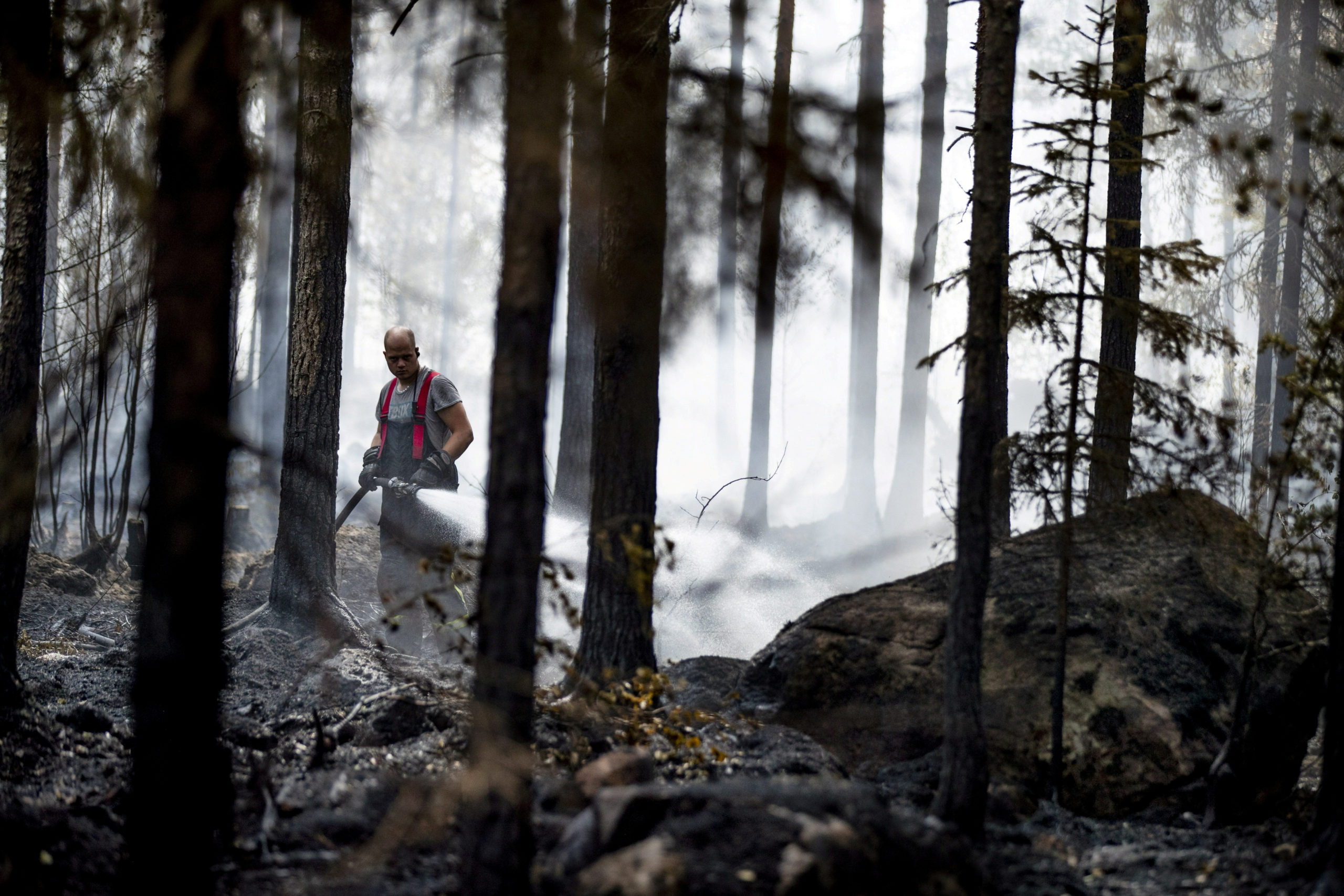Finland’s worst wildfire in decades is raging through a northwest forest
The fire comes after Finland saw record high temperatures.

HELSINKI — Finland’s worst wildfire in more than half a century scorched the country’s northwest for a fifth day on Friday, tearing through forests left dry by record summer heat.
Firefighters were brought in from across Finland to the remote Kalajoki river valley, with 250 people and four helicopters working to put out the flames, emergency responders said.
Strong winds blowing flames from treetop to treetop had made it the country’s second-biggest wildfire of all time, covering some 300 hectares and exceeded only by an outbreak in the same region 51 years ago.
“When it started spreading as a treetop fire, we measured its spread as fast as 20 kilometers (12 miles) per hour,” Fire Chief Jarmo Haapanen told Reuters.
While some rain had fallen, it will take at least another week to put out the blaze as the smouldering forest base continues to pose a danger, he added.
“There is still risk it might spread if the drought continues and the wind starts blowing,” Haapanen said.
[Russian army, emergency services tackle wildfires raging in country’s east and west]
Unlike fires that raged in the western United States or in southern parts of Europe, the blaze in the sparsely populated northern Finnish region did not cause damage to houses or force people to be evacuated.
The Arctic and sub-Arctic regions of the planet are warning faster than the global average as human-caused emissions of heat-trapping CO2 and other greenhouse gases continue.
An exceptionally long heatwave gave Finland record temperatures this summer, with June averaging 20 degrees Celsius (68 degrees Fahrenheit), some 4-5 degrees above historical averages.
Scientists at Finland’s Meteorological Institute and the Natural Resources Institute concluded in a research paper that rising temperatures will make conditions more favorable for fires in Nordic forests.
“In short, it means that transpiration intensifies and the terrain dries faster,” meteorologist and research scientist Ilari Lehtonen of the Meteorological Institute told Reuters.